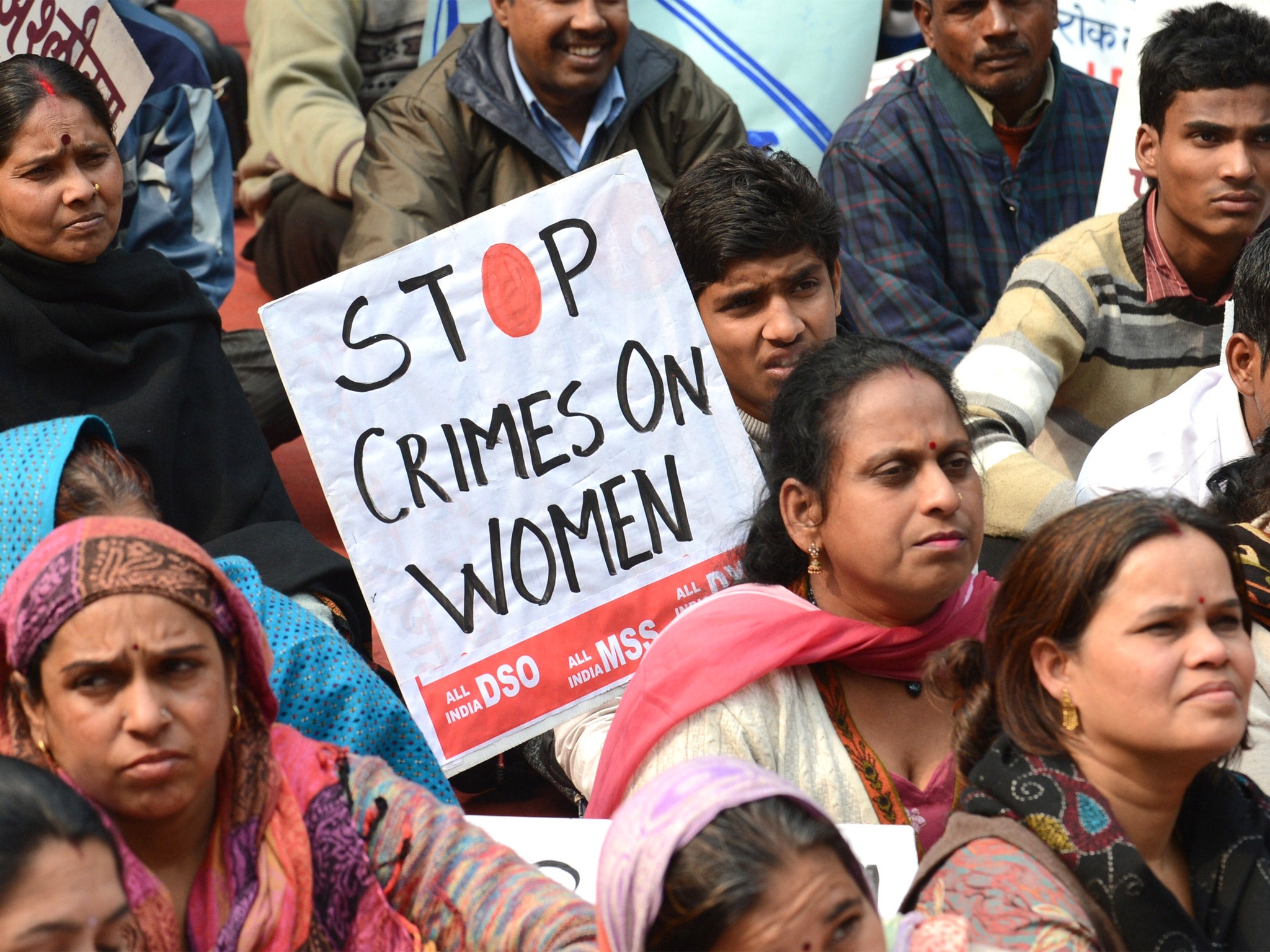Apathetic. A failure. The official verdict on India's rape police
Former chief justice calls for stricter enforcement of sexual assault laws and women judges

Your support helps us to tell the story
From reproductive rights to climate change to Big Tech, The Independent is on the ground when the story is developing. Whether it's investigating the financials of Elon Musk's pro-Trump PAC or producing our latest documentary, 'The A Word', which shines a light on the American women fighting for reproductive rights, we know how important it is to parse out the facts from the messaging.
At such a critical moment in US history, we need reporters on the ground. Your donation allows us to keep sending journalists to speak to both sides of the story.
The Independent is trusted by Americans across the entire political spectrum. And unlike many other quality news outlets, we choose not to lock Americans out of our reporting and analysis with paywalls. We believe quality journalism should be available to everyone, paid for by those who can afford it.
Your support makes all the difference.A panel set up in the aftermath of the rape and murder of an Indian student criticised the “apathy” of police and officials as it tabled a series of recommendations designed to tackle sexual assaults on women, including new laws, faster courts and female judges.
J S Verma, a former chief justice of India who headed the panel, said he had been shocked to see the country’s Home Minister patting the chief of the Delhi police on the back in the days following the crime. The very least he should have done, he said, was to have sought an apology for the police’s failure “to protect citizens”.
“Failure of good governance is the obvious root cause for the current unsafe environment, eroding the rule of law and not the want of knee-jerk legislation,” he added, as his panel outlined their report after receiving 80,000 suggestions.
Among the top suggestions were the strict enforcement of sexual assault laws, the appointment of women judges to oversee assault cases, the removal of immunity for soldiers accused of sexual assaults in conflict areas and an effort to make public transport safer.
The panel also recommended that all marriages should be registered in an attempt to finally put an end to the habit of women’s families paying dowries. It also asked the government to halt an invasive and unscientific vaginal test used to determine whether a woman is sexually active.
However, in contrast to the demand of the family of the student who was killed and many of those who joined protests calling on the government to take action, the panel said it did not support the introduction of the death penalty for such offences. It also opposed lowering from 18 to 16, the age at which a suspect ceases to be treated as a juvenile by the law.
“We hope the parliament will take the legislative suggestions given by the committee, and translate these into law,” said the retired chief judge. There was no immediate response from the Prime Minister, Manmohan Singh, who had established the panel.
Last night, a number of organisations that had submitted suggestions to the panel said they believed it had included most of the major points passed to it.
“Overall, I think we are quite positive,” said Sudha Sundararaman, of the All India Democratic Women’s Association. “We found that most of the suggestions we made have been included in the recommendations, especially in extending the definition of rape and sexual assault.”
Yet there was some scepticism as to what would happen next. India is notorious as a place for holding endless commissions into various issues that then do not get taken up or else are just partly implemented.
“The whole issue is how the government will respond. Will it be taken up and legislated upon,” said Professor Ranjana Kumari, of the Centre for Social Research in Delhi, who was among more than 100 female activists who appeared before the panel.
The handing over of the panel’s recommendations to the government came as the activist group Azzaz.org launches its own report calling on the Indian government to establish a four-year education campaign against rape and sexual assault. Having collected more than 1.1 million signatures, the group said it was essential the government confronted the crime.
The 23-year-old woman was attacked after she and her male companion boarded a bus on 16 December. She suffered widespread injuries and died two weeks later. Six males – five adults and a juvenile – have been arrested. The five men, who have been charged with rape and murder and who face the death penalty, are due to return before a fast-track court today.
Meanwhile, India’s Supreme Court is hearing a petition to have the trial moved out of Delhi.
Morocco moves to change law on marriage
Nearly a year after Morocco was shocked by the suicide of a 16 year-old girl forced to marry her alleged rapist, the government has announced plans to change the penal code to outlaw the traditional practice.
Women’s rights activists have welcomed Justice Minister Mustapha Ramid’s announcement, but said it was only a first step in reforming the law.
The kingdom’s penal code allows those convicted of “corruption” or “kidnapping” of a minor to go free if they marry their victim. Last March, 16-year-old Amina al-Filali poisoned herself to get out of an abusive marriage to a man she said had raped her. AP
Join our commenting forum
Join thought-provoking conversations, follow other Independent readers and see their replies
Comments